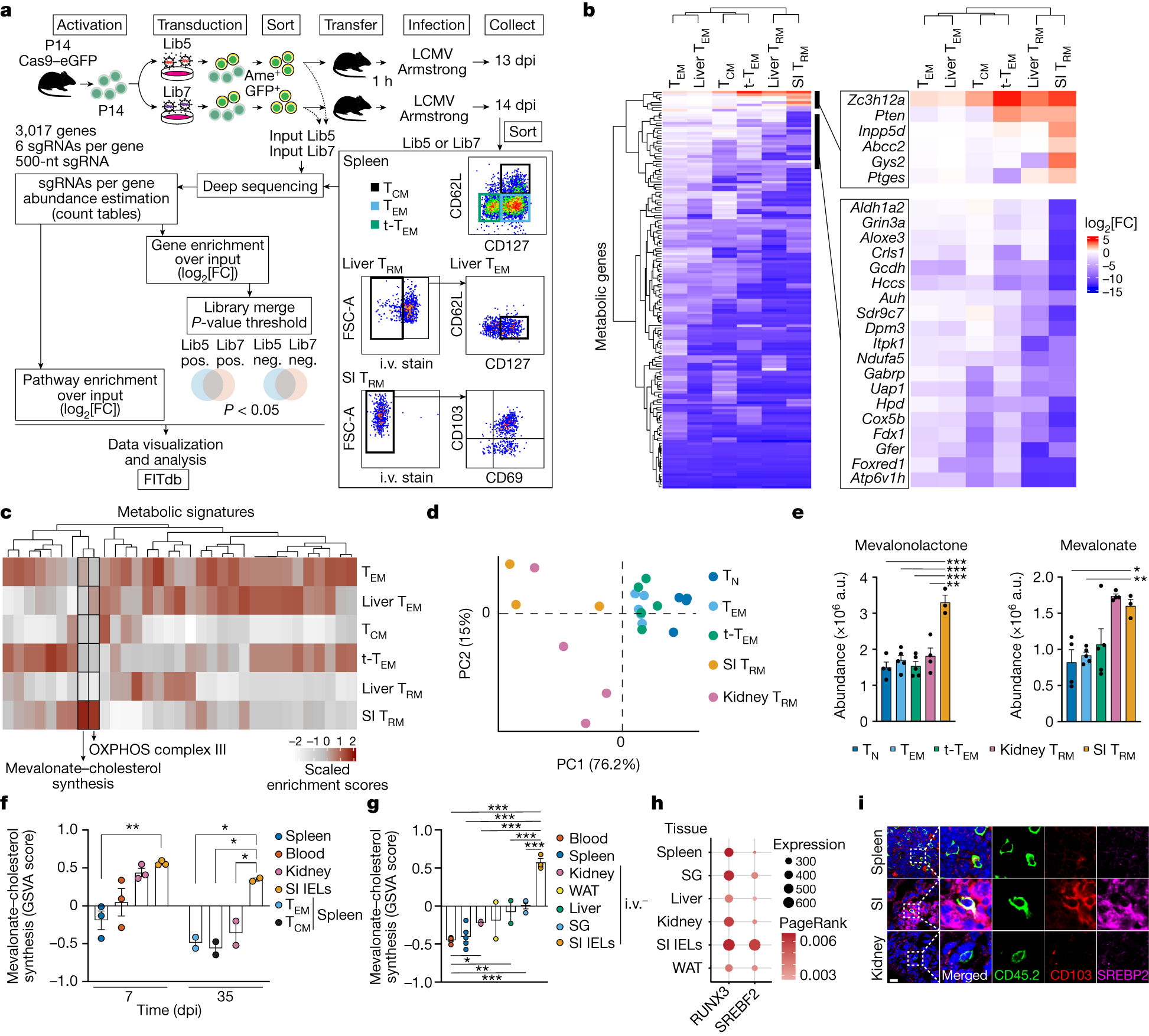The human immune system possesses a remarkable strategy—it remembers past adversaries through a phenomenon known as immunological memory, thus thwarting potential diseases. This credit goes to a specialized cell type called tissue-resident memory CD8+ T cells (TRM cells), which take up residence in vital organs such as the small intestine and lungs. They are considered frontline defenders, stationed in places where problems may arise. The endurance of these cells is extraordinary, as they can shield individuals from infections that occurred decades ago.
In a recent study conducted by researchers from the University of California, San Diego, and other institutions in the United States, new insights have emerged regarding the metabolism of tissue-resident memory T cells (TRM) and how to enhance their ability as immune defense weapons against infections and tumors. The research findings were published online in the journal Nature on August 30, 2023, under the title “Metabolic programs of T cell tissue residency empower tumour immunity.” The corresponding author of the paper is Dr. Ananda Goldrath, a professor in the Department of Molecular Biology at the University of California, San Diego. The first author of the paper is Dr. Miguel Reina-Campos, a postdoctoral researcher in the Goldrath laboratory at the University of California, San Diego.

Dr. Goldrath states, “T cells destined to reside in barrier tissues are professional survivalists. These cells excel at protecting the body’s tissues, and understanding their unique adaptive strategies can teach us how to design better immunotherapies.”
These researchers embarked on a mission to determine whether these powerful T cells could be harnessed for immune defense and to gain a deeper understanding of the processes at play. Dr. Reina-Campos explains, “The immune system is adept at dealing with pathogens and infections, but it struggles against tumors.” They wanted to know if these exceptional T cells held the key to ushering in a new era of innovation in the immune system, particularly in the battle against stubborn tumors. Picture immune cells adapting, thriving, and evolving within their organ strongholds.
The authors delved deep into the functions of thousands of genes that promote the survival of these cells. They ultimately discovered a significant increase in the complex production of cholesterol molecules within TRM cells residing in tissues. However, a surprising mystery emerged as these cells appeared ready to produce cholesterol, yet a cholesterol-rich diet diminished their effectiveness. They eventually uncovered that these clever T cells also generate a molecule called coenzyme Q during the complex process of cholesterol production. Coenzyme Q is essential for the proper functioning of mitochondria within cells. Dr. Reina-Campos remarks, “What surprised me the most is the sensitivity and responsiveness of these cells to diet. Nature favors cost-effective solutions. If T cells sense an excess of cholesterol, they shut down the entire internal cholesterol production line, much like someone might stop buying groceries and cooking if they receive free meals every day. These cells are resourceful, but that doesn’t always align with their best interests.”
Armed with this newfound knowledge, the researchers devised a clever strategy to redirect the T cells’ ability to produce cholesterol toward producing more coenzyme Q. Think of it as rerouting a river to nourish different landscapes.
Benefiting this research is the existence of drugs that can be used to orchestrate this transformative redirection and strengthen T cells for more successful survival within tissues.
Dr. Reina-Campos explains, “We are very excited because we’ve found an existing drug that can implement this redirection where we need it. When we apply this interference technique to tumors, we can help T cells maintain ample energy, allowing them to better resist tumors within the mouse’s body.”
Another effective method of modulating this pathway involves statin drugs, which millions of people use to suppress cholesterol formation and treat cardiovascular diseases. The authors discovered that statin drugs inhibit the fuel supply to T cell mitochondria, leading to a reduction in TRM cells found in tissues. This is because statin drugs block this pathway upstream, preventing the production of crucial mitochondrial molecules.
While the benefits of statin drugs for cardiovascular health are undeniable, these results prompt further research to understand their immune-regulatory effects. On the flip side, statin drugs may provide new insights and tools for suppressing unnecessary T cell activation within tissues.
Reference
1. Reina-Campos, Miguel, et al. “Metabolic programs of T cell tissue residency empower tumour immunity.” Nature 621.7977 (2023): 179-187.
